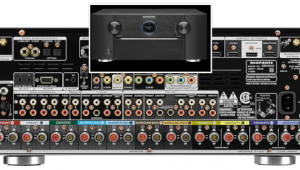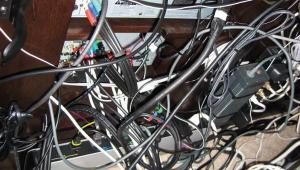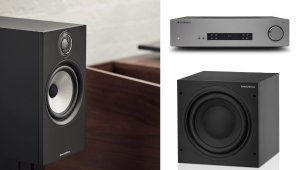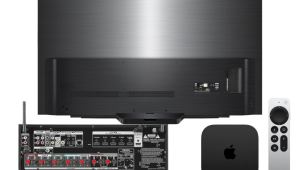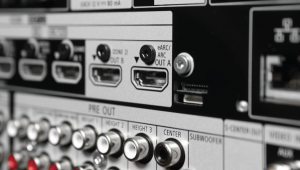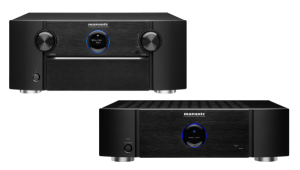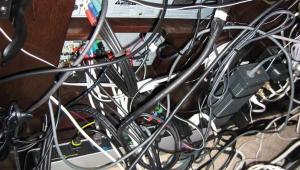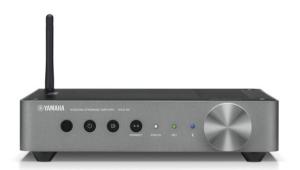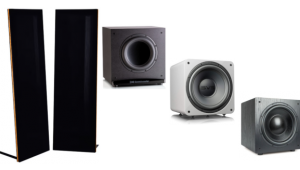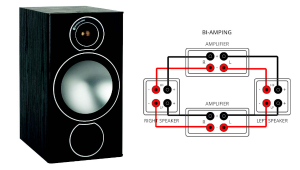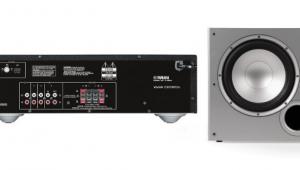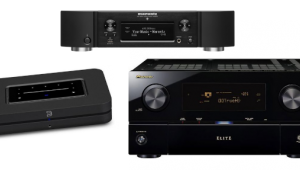I'll never understand why people blame the center-channel speaker for transmitting poor dialog and localization when, with an otherwise excellent sound system, sound is excellent and dialog is perfectly clear. I'm not trying to brag here but my sound system cost 10K and is perfectly calibrated, yet I can still play a BD movie and run into poor dialog mixing. All else being equal when this happens I blame the sound mixer and sound editor, not my speaker system. If the center channel was the problem I would argue that all source material should sound poor but that's not the case.
What Can I Do When Movie Dialogue Gets “Lost”?

Q I plan to buy a KEF R300 surround speaker system and an Anthem MRX 310 AV receiver and use the system almost exclusively for watching movies. I’m getting older, and movie dialogue sometimes gets lost. (My wife says I don’t listen sometimes, but that is another subject.) What are your thoughts and recommendations here? —Michael Wood / via e-mail
A I think you’re on the right track in buying a KEF R300 speaker system, which Sound & Vision granted Top Pick status when we reviewed it back in 2012. Pretty much any speaker system—even a soundbar—will be an upgrade over your TV’s built-in speakers, but the KEFs should take your movie-watching experience to a whole new level.
Hearing dialogue isn’t likely to be an issue when your new system is up and running, but if it continues to get lost, there are two features found on Anthem receivers that can help out. Anthem Room Correction can be used to set output levels, crossover frequencies, and room correction EQ for each individual speaker in your system. The benefits of ARC can be readily heard at the low end, but it also helps to clean up and tighten sound from the center channel and surround speakers. And the MRX 310’s Level Trim adjustment is an on-the-fly tweak you can make via remote control for each speaker (front, center, surrounds, sub) during playback. This will come in handy during movies where dialogue is getting lost in the mix and requires a quick boost to enhance intelligibility.
- Log in or register to post comments


Hear, hear. OK, pun intended. But it's also the fact: I have great -- not just good, but Great -- CCs on my systems by Def Tech and GoldenEar, with Onkyo high end and Pioneer Elite AVRs running them, and I flat out guarantee that if there's a sloppy, muffled or blurred center sound, it's not my equipment and it's not my ears on this piece at this place; it's the medium.

Nobody is blaming the center channel speaker for dialog intelligibility issues mentioned in the original question. Most modern speakers are at least pretty good. What you do not understand is how your hearing changes (and it will) as you age. At some point, probably around mid-40s for most people, it becomes increasingly difficult to hear speech when other noise is present. No problem listening to dialog, conversations, or a presentation in a quiet environment, but when there is other noise in the environment, speech gets increasingly difficult for older ears to hear accurately. The effect gets worse and worse with age and there's essentially nothing you can do to stop it from happening. Your aging body brings this change with it whether you like it or not. One of the most difficult places to hear someone speaking is on a busy city street... the individual noises reflect off of buildings and the street making a fairly high level of background noise that speech just blends into when you are older. Some restaurants with high noise levels have the same problem as do movies where dialog happens at the same time as you are being surrounded by other sounds as loud as or louder than the dialog. That all has nothing to do with the speakers or any other components in the system... it's just what happens with aging ears.

I think the answer should include that it is the centre channel in a multi-channel setup that contains the dialogue and as such it should be individually boosted using the amp. Also each 3 decibel gain is a doubling of the volume.
